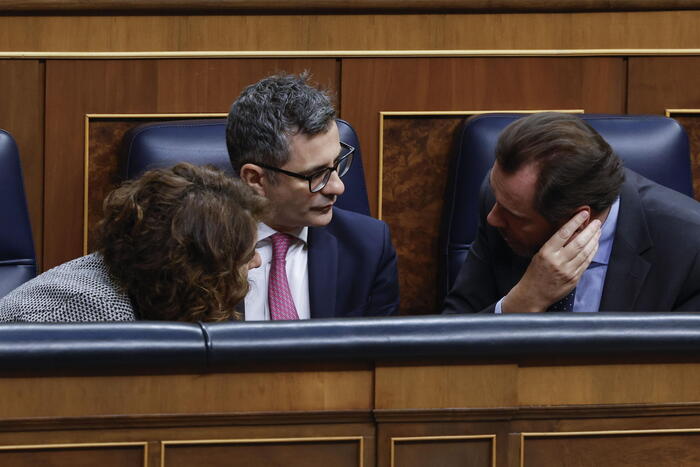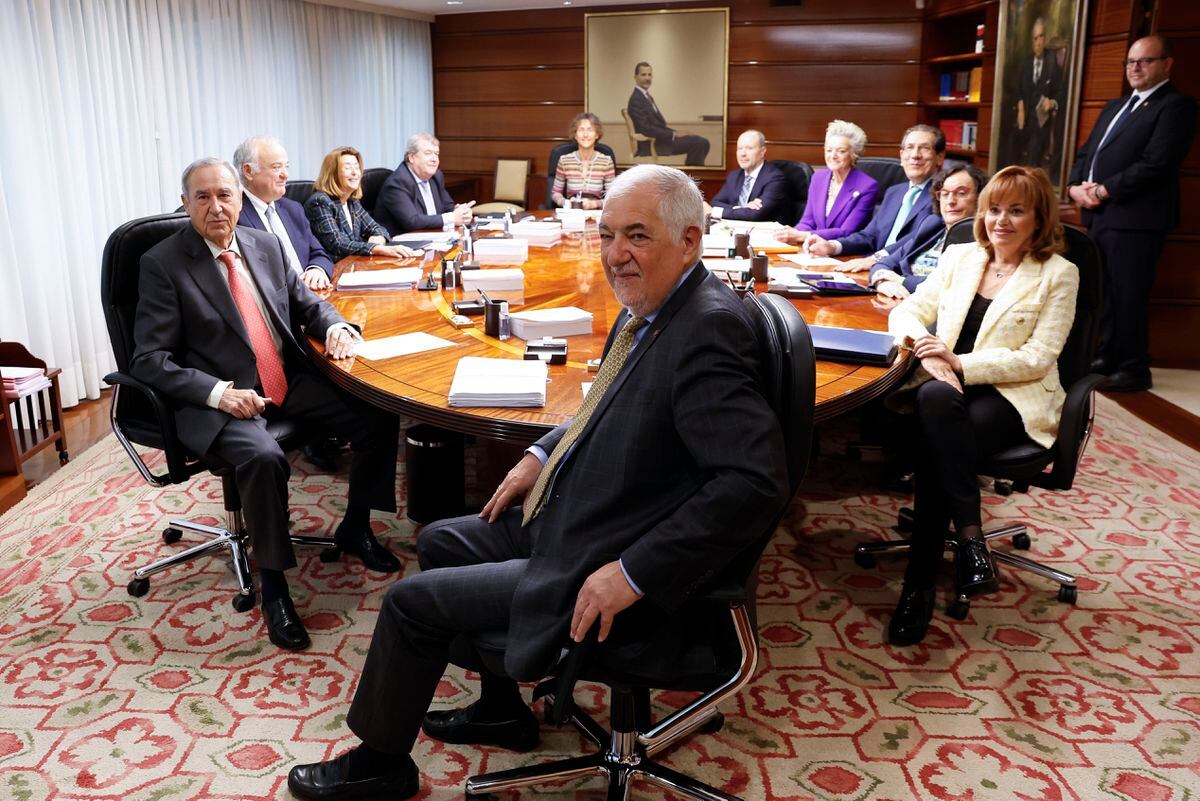The bill on the use of co-official languages in schools in Catalonia has achieved an unusual consensus of four between Junts, ERC, the PSC and En Comú Podem, which represents 80% of the regional parliament.
But its content is far from generating unanimity in the academic field.
The controversy centers on article 2 of the law, a precept that guarantees that Spanish is a language of “curricular and educational use”.
The delimitation of the scope of the "curricular" concept triggered a storm of conflicting statements in Parliament on Wednesday.
While the pro-independence parties boasted of having left Castilian out of the category of "vehicular" language - as Catalan is -, the PSC maintained that curricular and vehicular are in practice the same.
The disparity of opinion carries over to academics, linguists, and activists.
"The message that is wanted to be given, without being given, is that Spanish is admissible as a language for teaching content," says Albert Branchadell, philologist and dean of the Faculty of Translation and Interpreting at the Autonomous University (UAB).
“It is difficult to interpret the term curricular in a sense that is not related to the subjects that constitute the academic curriculum”, he indicates, and affirms that the need to close a political pact
in extremis
it encourages the use of “deliberately elaborate language so as not to translate exactly what the court asks for into the law”.
The Superior Court of Catalonia (TSJC) has established ―as has the Supreme Court and the Constitutional Court repeatedly― that Spanish must be “vehicular”, and has set a minimum of 25% of the subjects to be taught in that language.
Ana Losada, president of the Assembly for a Bilingual School, appeals to the literalness of the sentence
(AEB), the entity that forced the execution of that judicial resolution.
“The bill does not add anything new nor does it remove Spanish from its status as a secondary language”, he considers.
“The Spanish language was already curricular, just like Gymnastics or History.
A vehicular language, on the other hand, is one in which the contents are studied, and those contents have to be core”, he reasons.
“Curricular is equivalent to vehicular, this is very clear, despite the fact that they have wanted to do it in a cosmetic way”, says, on the contrary, Gerard Furest, philologist, professor and author of the book “
Decàleg irreverent per a la Defensa del Català”
.
He understands that the new norm seeks to "comply with the sentence of 25%", and criticizes that the parties promoting the agreement maintain that the bill is the result of a transversal consensus.
“As much as they repeat it, they haven't counted on the educational community,” he says.
A similar criticism launches the Platform for the Language.
The entity in favor of a school only in Catalan, which has 26,000 members, tried to introduce an amendment to the legal text.
Without success, because it was only possible to do so through the parties with representation in Parliament, and none of them sponsored the proposal.
For Òscar Escuder, president of Plataforma per la Llengua, "the introduction of Spanish as a curricular language is a risk, because extensive interpretation could lead to the obligation to teach 50% of classes in Spanish."
Different positioning showed Òmnium, an entity that also presents itself as a guarantor of Catalan.
He celebrates the fact that Spanish remains the "curricular" language and that the character of "vehicular" continues to be exclusive to Catalan.
The linguist Carme Junyent tries to settle the debate stating that “curricular and vehicular are polysemic concepts, they can mean many things”.
And she adds: "The interesting thing would be that the law itself defined them."
The text of the bill, pending a vote in Parliament, does not meet the Court's resolution that ordered that, starting next week, at least 25% of teaching hours (a core subject, in addition to Spanish Language) are taught in Spanish in all the educational centers of the autonomous community.
The four parties, in a pact that transcends the pro-independence bloc, defend that the proportion of languages be set a la carte for each center, according to a linguistic plan that will take into account the sociolinguistic reality of each center and that must be endorsed by the Generalitat.
You can follow EL PAÍS Catalunya on
and
, or sign up here to receive
our weekly newsletter
Exclusive content for subscribers
read without limits
subscribe
I'm already a subscriber









